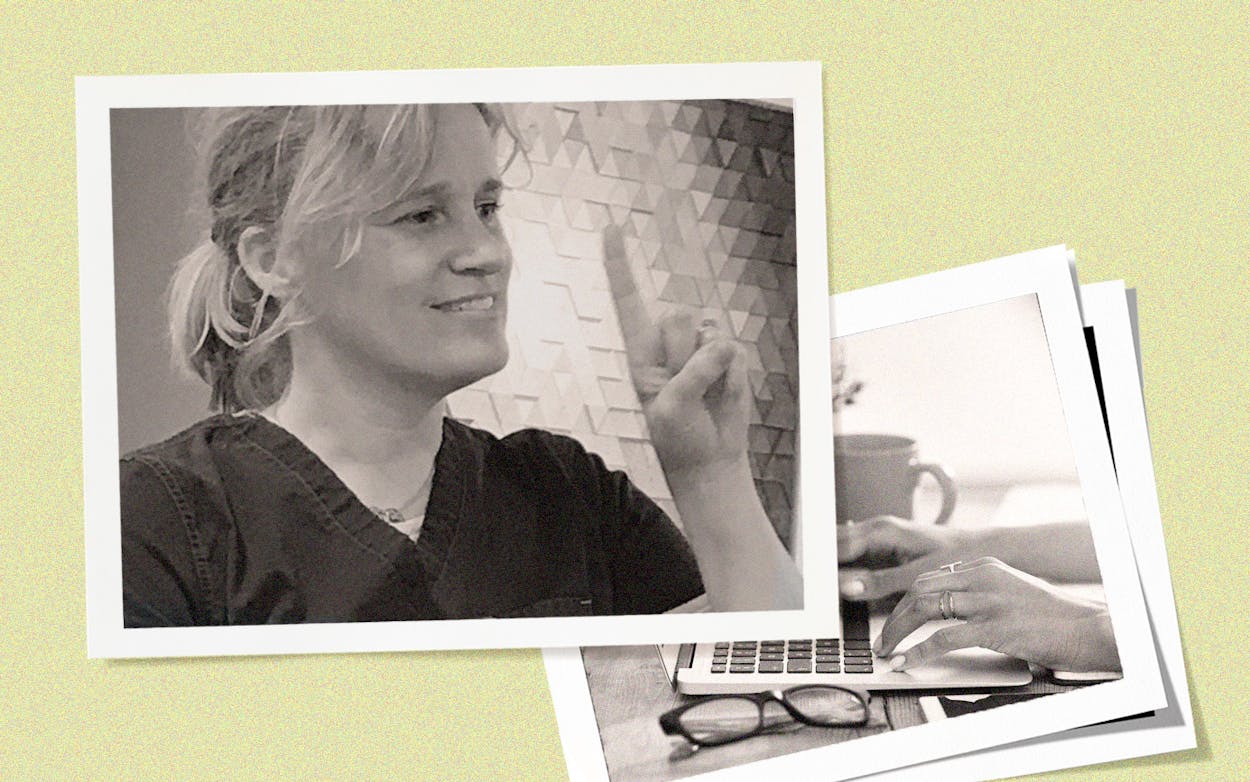It was when the NBA shut down and Tom Hanks tested positive that I realized this was going to be bad. I thought, Okay, this is different. I haven’t been giving this enough attention. We still had clinic that Friday, and I told my boss I didn’t think it was ethical to bring people in. We switched to telemedicine: we had already had things set up so that these vulnerable patients could very easily adjust to hearing from us on the phone, because most of them already do.
It was around that time that I started making videos on Facebook. I was thinking about all the small-town people I know in my home state of Nebraska. I was talking to them, and they’re all very pragmatic descendants of German immigrants, and they seemed oblivious to the pandemic. My mom was saying, “Yes, well, we had Bible study at Barb’s house and everyone seemed fine.” I said, “What do you mean ‘seemed fine,’ mom? What do you know about ‘seeming fine’? Four out of five people are asymptomatic.”
There was just this sense, especially in rural areas, of being untouchable. I was actually surprised by how quickly my patients adapted to the scientific reality. I would call them and say, “Okay, what are you doing?” “Well, my son’s delivering groceries now. He’s not even coming into the house, and I’ve got Walmart sending me my meds.” But I realized that people who didn’t have chronic health problems, like my mother, wouldn’t be as quickly or easily convinced. They had this false sense of invulnerability.
I’ve noticed that there is a quiet pride in rural people—my people—that can translate, medically, into denial.
So the first Facebook videos I did were more like, “Hey, this is real, stop going to Zumba on Fridays at your damn gym. Order ninety-day supplies of your medications, and don’t go to your doctor’s appointments unless you have to. The medical world has changed.”
The next one I did was about exponential transmission. I did a little visual aid. That one got a lot of play, so I thought, Okay, people are hungry for knowledge presented in easy-to-manage ways, and this is going to invigorate some of my community. Whether it’s patients here, or family back home. The word will get out.
That was the beginning. Then weeks passed, and we were all going through the initial adrenaline. That cooled, and people got depressed. I changed the tone of my videos and actually sang a couple of songs and read some poems. I gave medical advice but mostly tried to nurture people’s mental health.
Then somebody who had friended me from my hometown posted a conspiracy theory by a man from Massachusetts, who has degrees from MIT but who is spreading toxic information. It was part of the “fire Fauci” movement. It was just a kick in the gut. This is a dude that I hardly know now, but when I was in high school thirty years ago, I babysat for his kids. Now this is his response to me trying to comfort and educate people during unique circumstances? “Fire Fauci.” I was so mad.
I stewed, and stewed, and stewed. I made a video. I thought, “Maybe if this guy—just one person—listens to this, he’ll understand that his own misguided sentiments hurt people.”
The video was about why science matters, and I talked about some archaic ideas about nurses. People don’t realize that nurses didn’t sign up to risk our lives; we signed up to take care of people. We signed up to work in an environment where we would be safe, and that is being compromised. Nurses are working twelve-hour shifts. They’re using one N95 mask for five days in a row. They’re bringing their own ski goggles in.
The day after I posted that video, there were those protests, where the nurse was standing in front of the Dodge Ram truck. The timing was just unbelievable.
It’s amazing to have these attitudes toward nurses revealed. You hear about the heroism of nurses, and people call them warriors and heroes. But meanwhile, people in Dodge Rams are telling them to fuck off.
If you’d like to share your story, please reach out at tips@texasmonthly.com.
Read more from Notes on a Pandemic:
With Salons Closed, an 89-Year-Old Houston Woman Washes Her Hair for the First Time in Decades
“We’re Prepared for Just About Anything That Comes”
He Hoped Sheltering in Place Would Save His Marriage. Instead, It Led to Divorce.
A Woman in Quarantine Mourns Her Mother’s Passing Alone
- More About:
- Health
- San Antonio






